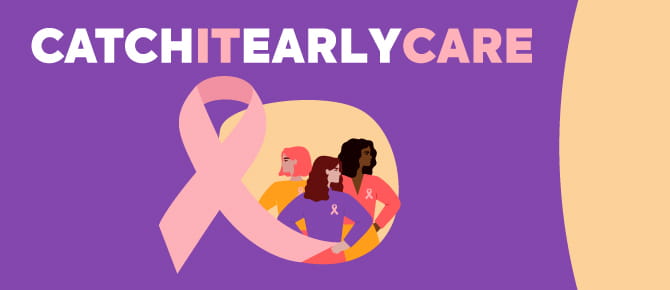
Wellstar Women's Health
Comprehensive Care for Every Life Stage
From adolescence to menopause and beyond, we offer advanced, specialty care tailored to your changing healthcare needs in every stage of life. We are committed to helping women live longer, healthier lives.
About
Women's Health at Wellstar
Wellstar women's health experts understand the conditions unique to women in all stages of life. Our comprehensive, compassionate team offers personalized care in a comfortable environment. We treat various health issues and life events, from gynecology and pregnancy to fertility and breast health. We also have extensive experience treating gynecologic cancers, as well as urogynecologic and other pelvic conditions.
Staying healthy is easier with convenient, state-of-the-art diagnostic, surgical and maternity services. Every woman should schedule an annual check-up at least once a year. As part of your well-woman exam, your provider will take your blood pressure, perform a Pap smear, pelvic exam and a breast exam. Depending on your age and medical history, your physician may recommend additional testing to catch potential health issues early.
Our Care Philosophy
Wellstar Women's Health understands that every woman is unique, and we know how to empower you to achieve optimal health. We are committed to caring for you with compassion and expertise.
Fertility
Deciding to have a family is a personal decision with many options. Based on your health, our team will help you achieve your goals and craft a plan tailored for you.
Obstetrics
Whether you need routine prenatal and delivery services or high-risk pregnancy care, we're here to ensure the health and wellness of you and your baby.
Gynecology
Healthcare needs change as you age. Get the most effective care for everything, from puberty and sexual health through menopause and hot flashes.
Breast Health
We use the latest screening technologies to monitor your breast health, which can help doctors diagnose abnormalities or breast cancers at the earliest stage.
Our Care Team
Our team partners with you to ensure you receive the comprehensive care you need and the experience you desire. For our expecting patients, we offer a variety of birth and care plans. Our gynecological team provides integrated care with other medical specialties, both medical and surgical, to determine the best possible treatment plan for you. Our team members collaborate with experts in other medical disciplines throughout Wellstar to provide you with personalized care tailored to your needs.
Comprehensive, specialized care
Medical specialists collaborate to create patient-centered care plans. Our multidisciplinary teams often include board-certified OB/Gyn’s and certified nurse-midwives who have the most advanced training and knowledge in their fields. They collaborate with specialists, including:
- Breast Surgeons
- Gyn-oncologists
- Maternal-fetal medicine specialists
- Reproductive endocrinologists
- Urogynecologists
Innovative technology, individualized treatment
You will experience the convenience and commitment of a dedicated team providing the highest quality care. We will develop a plan that is specific to you based on your needs and goals. Team members may include:
- Advanced nurse practitioners
- Genetic counselors
- Lactation and breastfeeding specialists
- Physical therapists
- Specialized imaging technicians
- Ultrasound professionals
Wellstar Foundation
As a not-for-profit, gifts to the Wellstar Foundation make it possible to provide patients with additional resources and amenities for a higher level of comfort and care. Every dollar donated supports Wellstar’s vision of delivering world-class healthcare, carried out through patient-centered programs, advancements in technology and making reliable healthcare available close to home. Your generosity also makes it possible to provide free screenings and diagnostic services to uninsured and underinsured patients every year. For more information about how to support our fight against disease, visit the Wellstar Foundation.

Helpful Links
Services
- Labor and Delivery
- Obstetrics
- Maternal-Fetal Medicine
- Reproductive Endocrinology and Infertility
- Certified Nurse Midwifery
- Expectant Mother and Family Education Classes
- Gynecology
- Urogynecology
- Gynecologic Oncology
- Preventative Care and Contraception
- Minimally Invasive Gynecologic Surgery
- Robotic Gynecologic Surgery
- Pelvic Floor Physical Therapy
- Menopause care
- Comprehensive Breast Health Program
- 3D Mammography
- Digital Mammography
- Breast MRI
- Breast Biopsy
- Breast Surgery
- Breast Reconstruction
- Genetic Counseling


Think PINK: Raise Your
Breast Cancer IQ
Wellstar oncologist and breast cancer specialist
Dr. Laura Pearson shares tips to help increase
breast cancer awareness throughout the year.

Let’s Talk About
Mom’s Mental Health
Maternal mental health means how a mother feels in her mind and heart during pregnancy and after giving birth. It’s very important that moms—and the people around them—know the signs of a mental health concern.
Learn more
6 Weight Loss Questions Answered by Our Experts
People who want to lose weight have more options than
ever before, though deciding which one to pursue can be a
challenge. Read what two physicians have to share.

4 Questions About Gynecologic Cancer
The gynecologic oncologists at Wellstar care for women at all stages of life, treating a variety of conditions with compassion and offering advanced care options.
Learn more
8 Heart Health Facts for Moms-to-be
Being proactive about heart health can help prevent life-threatening problems for pregnant women.
Learn more
Take the Mystery Out of Menopause
At Wellstar, our compassionate women’s health team provides individualized care to help women navigate this stage of life.
Learn more
Wellstar & Gabbi Partner to Assess Cancer Risk
We’ve partnered with Gabbi to provide breast cancer risk assessments for women ages 24 to 39.
Learn more
Wellstar Expands OB-GYN Services in Spalding, Upson Counties
Griffin OB-GYN Clinic and Renew Gynecology have joined Wellstar Health System.
Learn more
Navigate Your Breast Care with Concierge Services
Our program supports you with a full team of experts dedicated to your breast health care.
Learn more
Don't forget your keys to family health
The Atlanta Business Chronicle discusses how to avoid health problems with pediatric and women's health experts.
Learn more
The Importance of Regular Mammograms
Wellstar uses state-of-the-art imaging technology to help identify cancer sooner, so we can treat it faster. Getting a screening mammogram can save your life, so don’t delay.
Learn more
A Candid Talk About Your Breasts
A panel of women’s health experts discuss the latest on breast self-exams, breast cancer screenings and what you should be doing to be your healthiest.
Get the scoopLocations
Suite 220
Marietta, GA 30060
Suite 260
Hiram, GA 30141
Suite 150
Woodstock, GA 30189
Suite G
Alpharetta, GA 30004
Suite 200
LaGrange, GA 30240
Suite 100
Lithia Springs, GA 30122
Suite 9A
Austell, GA 30106
Suite 206
Marietta, GA 30062
Suite 301
Acworth, GA 30101
Suite 304
Holly Springs, GA 30114
Suite 300
Marietta, GA 30060
Suite 500
Marietta, GA 30060
Suite A210
Douglasville, GA 30134
Suite 1320
Acworth, GA 30101
Suite 420
Marietta, GA 30060
Suite 1400
Hiram, GA 30141
Suite 200
Austell, GA 30106
Suite 420
Marietta, GA 30060
LaGrange, GA 30240
LaGrange, GA 30240
Suite 115
Powder Springs, GA 30127
Building 2
Smyrna, GA 30082
Smyrna, GA 30082
Marietta, GA 30062
Suite 105
Marietta, GA 30066
Suite 110
Alpharetta, GA 30022
Hogansville, GA 30230
Suite 100
Acworth, GA 30101
Suite 105
Marietta, GA 30062
Norcross, GA 30071
West Point, GA 31833
Suite 120
Kennesaw, GA 30152
Smyrna, GA 30082
Suite 8A
Austell, GA 30106
Suite 105
Austell, GA 30106
Suite 400
Alpharetta, GA 30004
Marietta, GA 30060
Suite 115
Atlanta, GA 30341
Suite E
Alpharetta, GA 30009
Smyrna, GA 30082
Suite 216
Marietta, GA 30062
Atlanta, GA 30319
Decatur, GA 30034
Suite B
Douglasville, GA 30134
Suite 704
LaGrange, GA 30240
Suite B
Douglasville, GA 30134
Building B
Austell, GA 30106
Suite C
Woodstock, GA 30189
Suite E
Woodstock, GA 30189
Suite 303
Douglasville, GA 30135
Suite C
Woodstock, GA 30189
Suite 400
LaGrange, GA 30240
Medical Office Building 2nd Floor
Augusta, GA 30912
Medical Office Building 5th Floor
Augusta, GA 30912
Augusta, GA 30909
Cancer Center 1st Floor
Augusta, GA 30912
Medical Office Building 5th Floor
Augusta, GA 30912
Augusta, GA 30904
Wellstar Kennestone Womens Health Clinic
Suite 420
Marietta, GA 30060
Wellstar Hospitalist Group OB/GYN
Medical Office Building 2nd Floor
Augusta, GA 30912
Wellstar Gynecologic Oncology
Cancer Center 1st Floor
Augusta, GA 30912
Wellstar Maternal Fetal Medicine
Medical Office Building 5th Floor
Augusta, GA 30912
News
Related Articles

Highlights
Think PINK: Raise Your Breast Cancer IQ
P: Prevention
The best way to detect breast cancer early is by staying connected with your healthcare provider and keeping up with regular visits and screenings, including mammograms.Who should get screened, and when?
Annual mammograms are recommended starting at age 40. Women with additional risk factors or a family history should speak with their provider about starting screenings earlier.I: Information
Research and learn as much as you can about breast cancer. Knowing the signs and symptoms could save your life.What are the symptoms of breast cancer?
Some symptoms may be spotted early. Knowing what to look and feel for can help catch breast cancer before it progresses:- Lump in the breast or underarm
- Breast swelling or thickening
- Redness or flaking skin on the breast
- Nipple discharge other than breast milk
- Change in breast size or shape
- Pain in any area of the breast
N: Next steps
When a mammogram result is flagged for follow-up care, it can feel scary. At Wellstar, you don’t have to face the process alone. Our Comprehensive Breast Health Program offers complimentary concierge services, automatically enrolling patients with abnormal mammogram results. Dedicated nurse navigators guide you through each step of the diagnostic process—helping with scheduling, answering questions and supporting your physical and emotional well-being. If you are diagnosed with breast cancer, it’s important to partner with your care team to plan your treatment.What happens after a breast cancer diagnosis?
- Schedule a follow-up visit. Meet with your healthcare provider to ask questions about your diagnosis and treatment options.
- Consult with specialists. At Wellstar, breast surgeons and oncologists work as part of an integrated team to recommend treatment tailored to your condition. Patients also have access to advanced imaging, leading facilities and experts in surgery, radiology, pathology and oncology.
- Explore STAT Clinic. At the Breast Cancer STAT Clinic at Wellstar North Fulton Medical Center, a full team—including a breast surgeon, medical oncologist, radiation oncologist, genetic counselor and nurse navigator—meets with you in one place on the same day. Together, they create a personalized treatment plan before you leave, helping reduce the time from diagnosis to treatment from months to just two weeks. This patient-centered model brings the specialists to you, ensuring the most seamless, supportive experience possible.
K: Knowledge
Knowing your personal health, family history and risk factors helps your care team determine if you may be at increased risk of developing breast cancer. For women ages 24 to 39, Wellstar has partnered with Gabbi to offer a personalized, virtual breast cancer risk assessment. The program provides next-day virtual visits with specialists, coordinated imaging at Wellstar and 24/7 concierge support.What are the risk factors for breast cancer?
- Age. Risk increases as women get older.
- Family history. Having a relative with breast cancer—or a male relative with prostate cancer—can increase risk.
- Previous radiation therapy. Radiation to the chest for other cancers or lymphomas may increase risk.
- Past diagnosis. A previous breast cancer diagnosis raises the likelihood of recurrence.

Highlights
Make Breast Health Your Habit
When it comes to diagnosing breast cancer, time is of the essence.
That’s why Wellstar uses state-of-the-art imaging technology to help identify cancer sooner, so we can treat it faster. Getting a screening mammogram can save your life, so don’t delay.
“The earlier we detect a breast cancer, the better we are able to treat it,” said Wellstar Chief of Women’s Health Dr. Paula Greaves.
With several imaging centers offering mammography, it's easy to find one that's convenient to you.
Who should get screened?
If you do not have any risk factors that increase your chance of developing breast cancer, you should start annual screening mammograms at age 40.
If you’re at higher risk for breast cancer, your provider may recommend you start screenings earlier and can help you create a personalized plan.
“Being female at birth gives you a 1 in 8 chance of developing breast cancer, but there are other components that can increase that risk,” Dr. Greaves said.
You may be at higher risk of developing breast cancer if:
- You have a family history of breast cancer. If any of your relatives have had breast cancer, talk to your provider about starting screenings earlier. Find out how old your relatives were when they were diagnosed with breast cancer and begin screenings when you are seven to 10 years younger than their age of diagnosis.
- You have had previous radiotherapy treatment in the chest area. Previous radiotherapy for other cancers or lymphomas can also raise the potential for breast cancer development.
- You have had breast cancer before. A previous breast cancer diagnosis often means a patient is more likely to develop breast cancer again.
Call (678) 581-5900 to schedule your mammogram. You can also ask your Wellstar care team to put your mammogram order in MyChart and you'll be able to schedule the test online. Find a mammography location near you.
What should I expect when I get a mammogram?
A mammogram uses low dose X-rays to examine the breast for abnormalities and signs of cancer. Wellstar offers 3D mammograms, which provide a series of detailed images of the breast, allowing healthcare teams to better evaluate breast tissue layer by layer. In these images, fine details are more visible as compared to 2D mammograms and are no longer hidden by overlapping tissue.
The mammography unit is a rectangular box that houses the X-ray tubes and special accessories so that only the breasts are exposed to radiation. Attached to the unit is a device that holds and compresses the breast and positions it so images can be taken from several angles.
The technologist is with you throughout the procedure and will ensure that the necessary images have been taken before completing the exam.
Once you have completed a mammogram, you may resume your normal, everyday activities.
If your screening mammogram results are normal, your next mammogram will be the following year, unless your care team recommends more frequent screenings due to family history or other risk factors. If you notice any changes such as a lump, sore spot or a difference in the appearance of the skin, contact your clinician.
What if I receive abnormal screening mammogram results?
When a mammogram result is flagged for follow-up care, it can be scary and intimidating for patients and their loved ones—but at Wellstar, you won’t have to navigate your health journey alone.
As you search for answers about your breast health, the Wellstar Comprehensive Breast Health Program and its complimentary concierge services will make your experience more seamless with a tailored care plan, advocacy for your physical and emotional well-being, dedicated team members for scheduling appointments and education about your care options. Our team of experts will stay by your side through the entire diagnostic process, offering personalized counsel at every step.
For more information on our Comprehensive Breast Health Program, call (470) 610-1910 or email [email protected]. Learn more about our personalized breast care at wellstar.org/breasthealth.
What are some symptoms of breast cancer?
In addition to yearly mammograms, your doctor may recommend you conduct monthly breast self-exams to look for any changes. Signs of breast cancer can include:
- Lump development in the breast or underarm
- Breast swelling or development of thickness
- Redness and/or skin flaking around the breast
- Discharge other than breast milk from the nipple
- Any change in the size or the shape of the breast
- Pain in any area of the breast
If you notice any of these symptoms, reach out to your doctor and schedule an appointment to evaluate your breast health.
Your Wellstar care team will support you at every step of your breast health journey, from screening mammograms to follow-up care.

Highlights
6 Weight Loss Questions Answered by Our Experts
Let’s cut to the chase: What is the best way to lose weight?
Dr. Rubin: There is no magic fix that works for everyone. Many people have tried every fad diet out there. They’ve tried being more active. Maybe they’ve even had bariatric surgery or used injectable weight loss drugs—but nothing works. If this sounds like you, schedule an appointment at a comprehensive weight loss center. Find one that offers medical and surgical treatment options and personalized recommendations. And make sure they provide ongoing support to help you meet and maintain your weight loss goals. Dr. Hilton: Both of our centers take this comprehensive approach. We use every tool available to treat obesity. You may be successful with lifestyle changes alone, or perhaps you need to meet with a behavioral therapist or consider surgery, medicine or a combination of therapies. Everyone is unique, and their treatment plan has to be unique too.What’s your take on weight loss injectables—are you a fan?
Dr. Rubin: I’m excited about drugs like Wegovy and Ozempic, which people sometimes refer to as GLP-1s. They work because they control your appetite and reduce ‘food noise,’ a persistent, unwanted focus on food. However, not everyone can tolerate the side effects, which include nausea, constipation and diarrhea. If you want to lose more than 20% of your body weight, using one of those drugs alone probably won’t get you there. Another consideration is that many people need to continue taking these drugs for life—even after they reach their weight loss goals.What are some misconceptions about bariatric surgery?
Dr. Hilton: Two big misconceptions are that bariatric surgery is dangerous and it doesn’t work. Here’s what I’d say: First, bariatric surgery is as safe as a routine procedure like gallbladder removal. Second, bariatric surgery is the most long-lasting and effective treatment for obesity available. Most people who have bariatric surgery maintain their weight loss at the 10-year mark.With weight loss drugs dominating the headlines, have you noticed a shift away from surgery?
Dr. Hilton: Yes, but I think that’s temporary. The drugs are sparking conversations about obesity and weight loss, which is a good thing. Patients who have never considered bringing up obesity to their primary care provider are asking about the injectables. They’re making appointments at a comprehensive weight loss center, and they are discovering they have a lot of choices. It isn’t ‘medicine or surgery’ or ‘medicine versus surgery.’ Sometimes the best answer is both.Can you share a weight loss success story with us?
Dr. Rubin: We’ve had so many success stories. One of our rock star patients has lost 250 pounds under our care. Now, she’s living her life again. Her diabetes is in remission, and her cholesterol has improved. She’s no longer depressed and isolated. My whole team is so proud of her—she has completely changed her lifestyle, sees our dietitian regularly and attends our support group. Another patient has lost 135 pounds. He and his wife are losing weight together, and it’s fantastic. Dr. Hilton: We ask our patients at their first visit, ‘What does success look like to you?’ Most have a number in mind, but non-scale victories are important too. Some want to get off their diabetes medicine or shop in a regular store instead of a big and tall store. Others want to take their kids to Disney World or a water park and have fun on the rides—not just watch.What is the No. 1 key to weight loss success?
Dr. Rubin: The key is to make lasting lifestyle changes. Medication and bariatric surgery can only get you so far. If you are ready to make these changes, consider finding a team who offers personalized, long-term support. Dr. Hilton, myself and others at Wellstar are here to help! Ready to take your first step? If you’re considering lifestyle changes, medication or surgery for weight loss, it all starts with a conversation. Schedule a visit with your primary care clinician to discuss your goals, health history and next steps.We use cookies for booking and general analytics. Learn more about or internet privacy policy.
